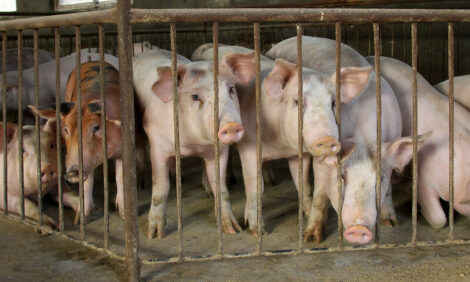



World Bank’s Safeguard Policies to Give More Protection to Farm Animals
GLOBAL - The Humane Society International has welcomed the reference to meaningful animal protection standards in the final draft of the World Bank Group’s Safeguard Policies.The safeguard policies, which are intended to set the standard for sustainability and social responsibility globally, now include a reference to meaningful animal welfare standards that would prohibit some of the most abusive practices in animal agriculture, including the confinement of animals in battery cages and gestation crates on large-scale facilities.
These standards apply to projects financed by the World Bank, as well as those supported by other development banks and institutions that follow the Safeguard Polices.
Humane Society International’s director of farm animals, Chetana Mirle, commented: “We welcome the inclusion of animal welfare within the final draft of the World Bank’s Safeguard Policies, specifically the reference to the International Finance Corporation’s Good Practice Note on Animal Welfare. The incorporation of animal welfare in the lending policies of a global financial institution like the World Bank demonstrates that animal welfare makes good business sense. The IFC’s Good Practice Note states that adopting higher animal welfare standards can result in reduced costs, increased productivity and competitive advantages. Food companies and consumers, including in developing economies, are increasingly demanding more humanely produced products. While the Safeguard Policies’ animal welfare requirements only apply to large-scale farmers, we hope the World Bank and other development organizations will also help small-scale farmers adopt and benefit from higher animal welfare standards.”
The document is scheduled for consideration by the World Bank’s Board of Executive Directors on August 4, 2016.








